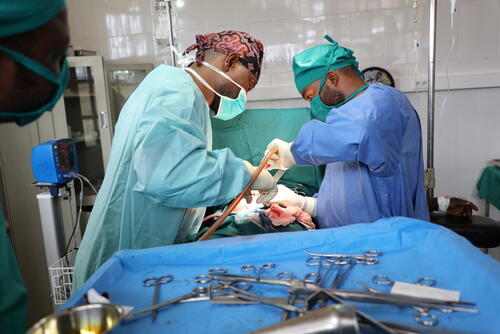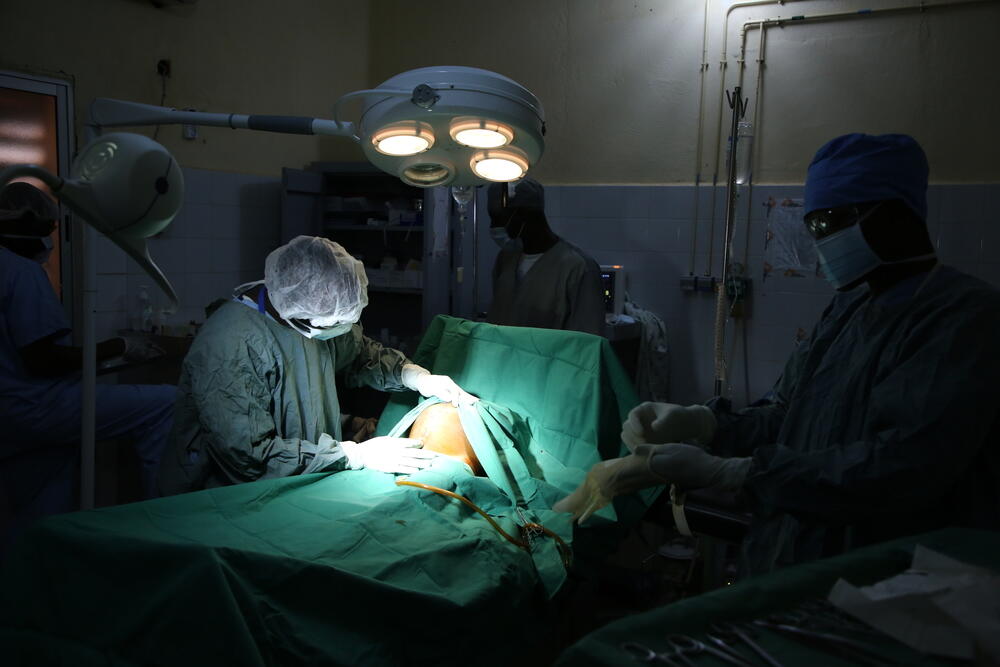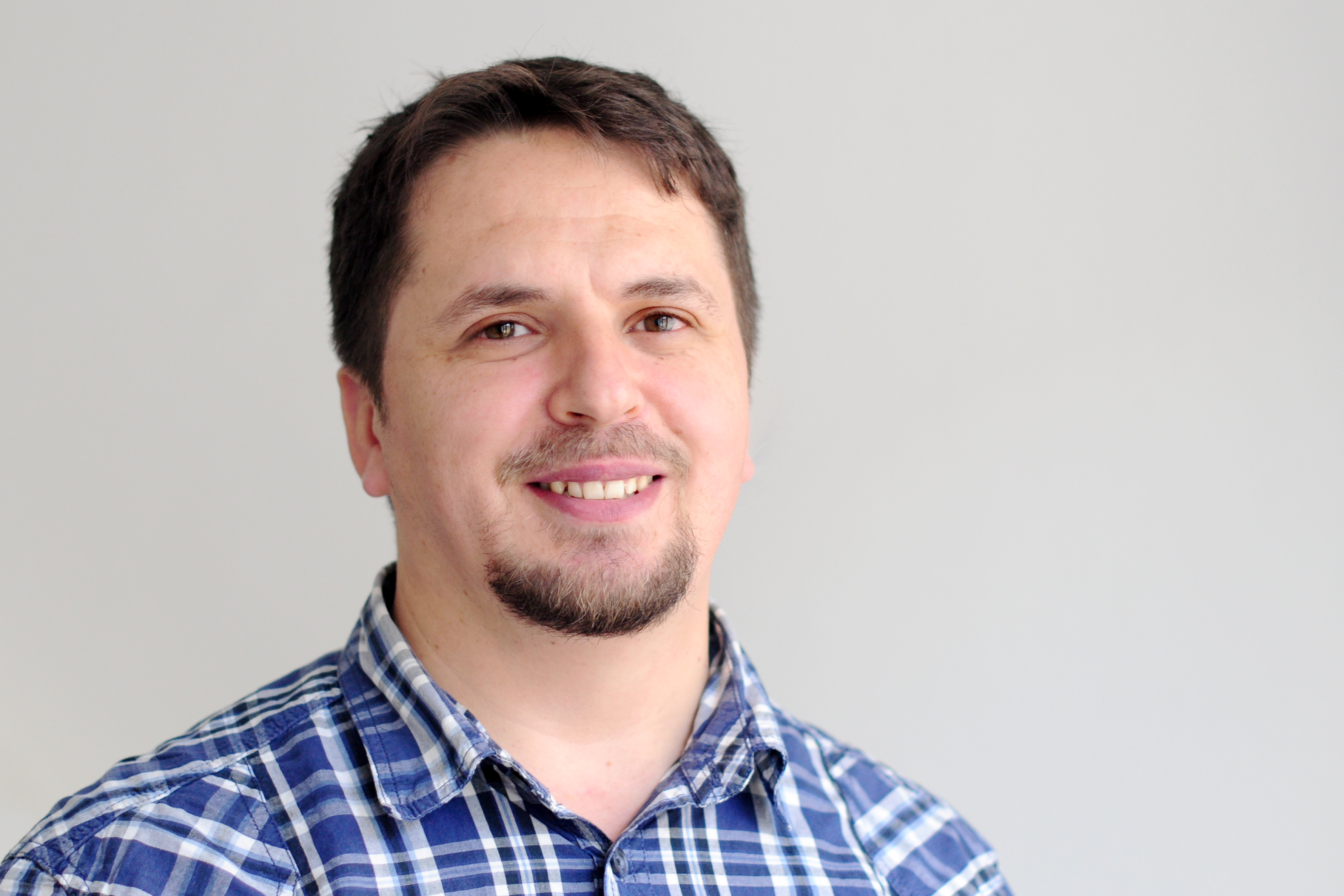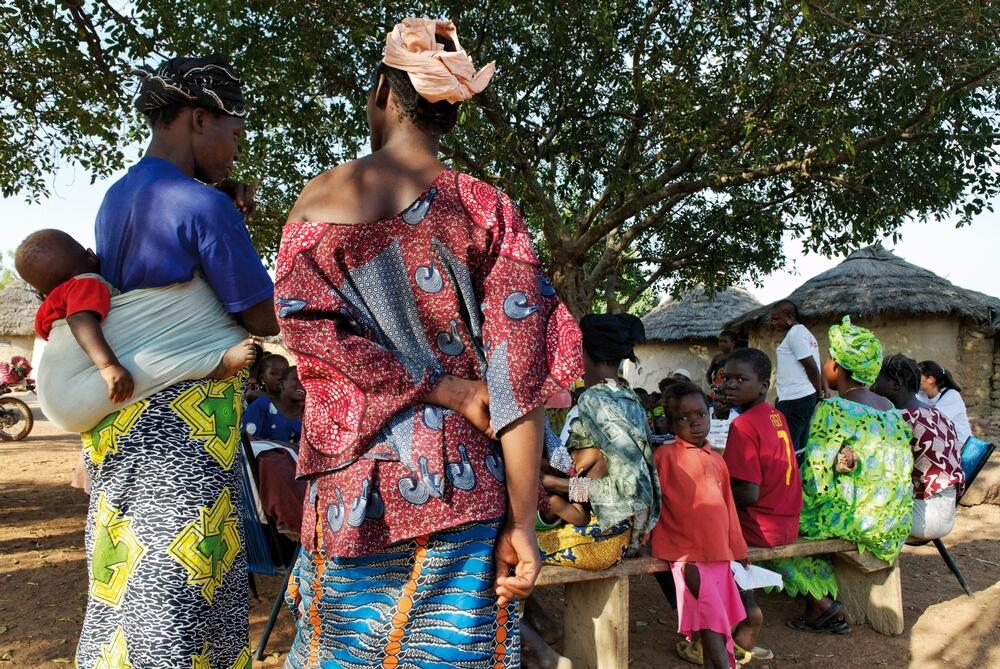Surgery: "Our operations can help people get their lives back"
From conflict zones to remote communities, anaesthetist Malik has spent over a decade working to deliver life-saving – and life-changing – surgery with Médecins Sans Frontières / Doctors Without Borders (MSF).
Imagine that you urgently need an operation, but there is no chance that you will get it.
How would you feel?
Maybe desperate? Angry? Sad?
For five billion people worldwide, this is a reality. Nine out of 10 people in low-income and middle-income countries don’t have access to surgical care, according to a study by the World Health Organization (WHO).
“For these women, returning to their villages and to their families, a new life begins after the operation”
Through my work with MSF, I’m part of a team bringing surgical care to exactly these places, and our operations save the lives of numerous people.
But for others, our surgeries can help them get their lives back.
Life-saving surgical care, thanks to your support
The generosity of people like you means expert MSF surgical teams can deliver vital, life-saving operations in hospitals across the world.
A preventable problem
During my first assignment with MSF in 2009 for example, I went to Mali.
Many of the women who came to our clinics had been marginalised because of a preventable health issue and were living in isolation on the outskirts of their villages. Meeting them, their sense of despair and loss was palpable.
The women suffered from a medical condition known as obstetric fistula. This can occur when complications arise during childbirth.
If the baby remains stuck in the birth canal for a long time, the pressure on the soft tissue can create a hole in both the birth canal and the urinary tract or rectum – this is a fistula.
If these women had been able to access adequate medical care, it would not have come to this. The complications would have been detected early and they could have delivered their babies safely, potentially through caesarean section (also known as a c-section).
But sadly, that wasn’t an option for them.
The fact that surgery is out of reach also means that they continue to suffer the consequences of the fistula, long after it first forms. Because the fistula connects the urinary tract and the birth canal, these women constantly leak urine, giving them a noticeable odour. The stigma these women face is significant: many are rejected because of the smell, and some have to turn to begging to survive.
But surgery can change a life.
In Mali, I experienced what this means in concrete terms. During my time there, my team and I operated on around 80 women who had obstetric fistulas.
A moment of joy
When treating someone with fistula, my job as an anaesthetist was to examine them, take their medical history and prepare everything for anaesthesia. In Mali, we used local anaesthesia, which is gentler for the patient.
After the operation, I took care of the pain management, while the physiotherapy team made sure that the women got moving again and re-trained their pelvic floors.
After two to four weeks, they were ready to be discharged. They laughed, danced and clapped – dance is also part of the therapy, both as a form of physio and for mental health.
The joie de vivre we all felt when women were able to go home was indescribable.
For these women, returning to their villages and to their families, a new life begins after the operation.

Support our teams to provide vital medical care
Standing by our patients
My experience in Mali showed me twice how important it is that we make surgical and anaesthetic care a central issue. A c-section could have prevented this suffering, just as the fistula surgery ended it – but only after many of the women had endured years of exclusion.
Since my first assignment, I have experienced again and again how MSF stands up for its patients worldwide.
I have worked in war zones such as Mosul in Iraq, and in the Democratic Republic of Congo I witnessed how a young woman’s parents carried her for 24 hours to reach the hospital, using a wooden door as a stretcher. We operated on her inflamed appendix and she survived, just.
Much remains to be done to ensure that more people worldwide receive the medical care they urgently need.
Today, my job is to offer technical advice to my colleagues in MSF surgical projects around the world. We provide over 100,000 operations a year, standing by our patients in places where this care would otherwise be unavailable.
MSF and surgery
We perform tens of thousands of life-saving operations each year.
From facial reconstructive surgery in Nigeria to dealing with the human cost of bomb blasts in Yemen, our surgical programmes can focus on a specific need, or be wide-ranging – reflecting the complexities of the places where we work.


